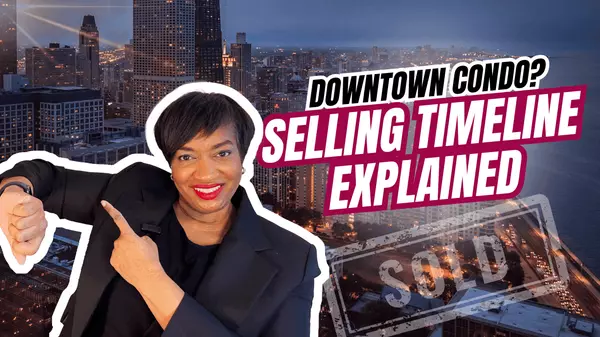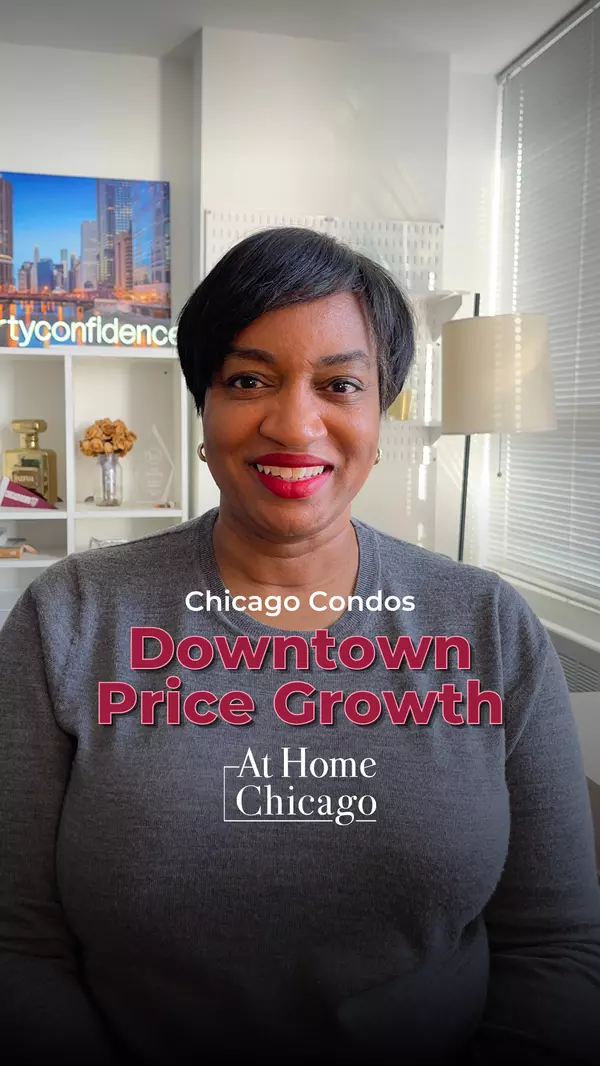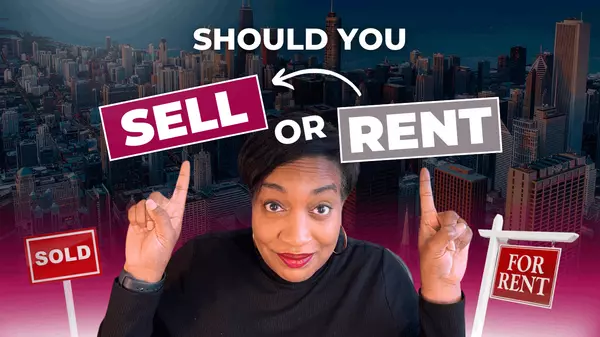Should I Sell or Rent My Condo in Chicago? A Guide for Condo Owners
Selling vs. Renting a Downtown Chicago Condo
Deciding whether to sell or rent your condo in Chicago is a major decision that depends on your financial goals, market conditions, and future plans. Whether you own a high-rise condo in River North, a luxury condo in the Gold Coast, or a loft in the South Loop, the right choice will vary based on your situation. In this post, we’ll explore the pros and cons of renting versus selling, key financial factors, and what to consider before making your decision.
The Case for Selling Your Condo
- Maximizing Your Return
If your condo is in a desirable neighborhood like the West Loop or South Loop and features modern upgrades—such as renovated kitchens, updated bathrooms, or hardwood flooring—selling can help you capitalize on its value. Buyers are actively searching for move-in-ready properties, especially in neighborhoods with rising demand. - Avoiding Rental Management Stress
Being a landlord in Chicago comes with responsibilities. From finding reliable tenants to handling maintenance and emergency repairs, rental management can be time-consuming. In Cook County, tenant-friendly landlord-tenant ordinances can complicate matters if a tenant falls behind on rent, runs afoul of building rules, or damages a unit. - Funding Your Next Chapter
Selling can provide immediate liquidity, allowing you to fund a down payment for your next home, start a new business, or pay off debt. If you’re planning to relocate or no longer want to own property in Chicago, selling offers closure.
The Case for Renting Your Condo
- Generating Passive Income
Renting your condo can provide a steady income stream, particularly if you own a high-rise in areas like Lakeshore East or Streeterville. For condos with in-unit laundry, deeded parking, and proximity to public transportation, demand from tenants remains strong. - Future Appreciation Potential
If the market conditions aren’t favorable for selling, holding onto your condo can allow you to benefit from a better sales market in the future. Neighborhoods like the South Loop and Fulton River District are poised for growth, making them ideal for long-term investments. - Low Mortgage Rates Make Renting Lucrative
If you purchased your condo during the low-interest-rate years of 2020–2021, your mortgage payments may be significantly lower than the current rental market rates. This could allow you to generate positive cash flow.
What to Consider Before Renting Out a Condo in Chicago
HOA Restrictions
Some condo buildings, such as those in the Gold Coast, impose strict rules on rentals. These may include a cap on the number of rental units, mandatory tenant interviews, or minimum lease terms (often six or twelve months). Be sure to review your HOA bylaws before deciding to rent.
Financial Factors
Renting generates income, but it also comes with costs. Property management fees, maintenance expenses, and potential vacancies can impact profitability. Additionally, capital gains tax exclusions may no longer apply if you rent out your property for an extended period. Speak with a financial advisor to weigh the tax implications of renting versus selling.
Time Commitment
Managing a rental property requires effort, especially if you don’t hire a property manager. From marketing your unit to handling tenant screening and repairs, renting demands time. Consider your schedule and capacity to take on landlord responsibilities.
Market Conditions for Selling Condos in Chicago
The current real estate market in Chicago varies by neighborhood:
- West Loop: With its vibrant dining and tech scene, West Loop condos often sell faster than other downtown neighborhoods, averaging 51 days on market in 2024.
- South Loop: Known for its affordability on a price-per-square-foot basis, South Loop condos appeal to a broad range of buyers and renters alike.
- Streeterville: While condos in this area take longer to sell—averaging 124 days—luxury units remain in demand among specific buyer segments.
- Gold Coast: Tree-lined streets and historic charm make the Gold Coast attractive to renters and buyers, but rental restrictions may apply in some buildings.
Tax Implications of Renting or Selling a Condo
Tax considerations are a key part of your decision:
- Selling: If you’ve lived in your condo as your primary residence for at least two of the past five years, you may qualify for a capital gains tax exclusion on up to $250,000 ($500,000 for married couples).
- Renting: Rental income is taxable, and expenses like property management fees and repairs can often be deducted. However, if you eventually sell, you may face capital gains taxes on the full appreciation since your basis may be adjusted.
When is the Best Time to Sell or Rent Out a Condo in Chicago?
Timing matters when deciding whether to sell or rent:
- Selling: Spring and early summer are typically the best times to list a condo for sale, as demand from buyers tends to peak during these months.
- Renting: Late spring through early fall sees high rental activity, as tenants prefer to move when weather conditions are favorable.
Final Thoughts: Should You Sell or Rent Out Your Condo in Chicago?
Both options have benefits and challenges. Selling provides flexibility and immediate liquidity, while renting allows you to generate income and hold onto your investment.
Still unsure? I can help. Reserve a time to chat with me and avoid time-waisting phone tag. Whether you’re in River North, the South Loop, or Streeterville. Together, we’ll create a strategy that aligns with your financial goals and lifestyle.
Share this post with someone considering selling or renting their Chicago condo—it could help them make the right decision!
Recent Posts

Chicago Condo Owners: How to Sell Your Unit with Tenants in Place

How Long Will It Take to Sell My Downtown Chicago Condo?

Downtown Chicago Condo Market Update: Trends, Insights & Surprises

Should I Sell or Rent My Condo in Chicago? A Guide for Condo Owners

Helping an Older Relative Sell a Home

Our 2020 Chicago Real Estate Market Forecast

4 Mortgage Shopping Tips for Chicago Homebuyers

3 Reasons Chicago Buyers Buy During the Offseason

A Guide to Handling Lowball Offers

Navigating a Home Inspection
GET MORE INFORMATION


